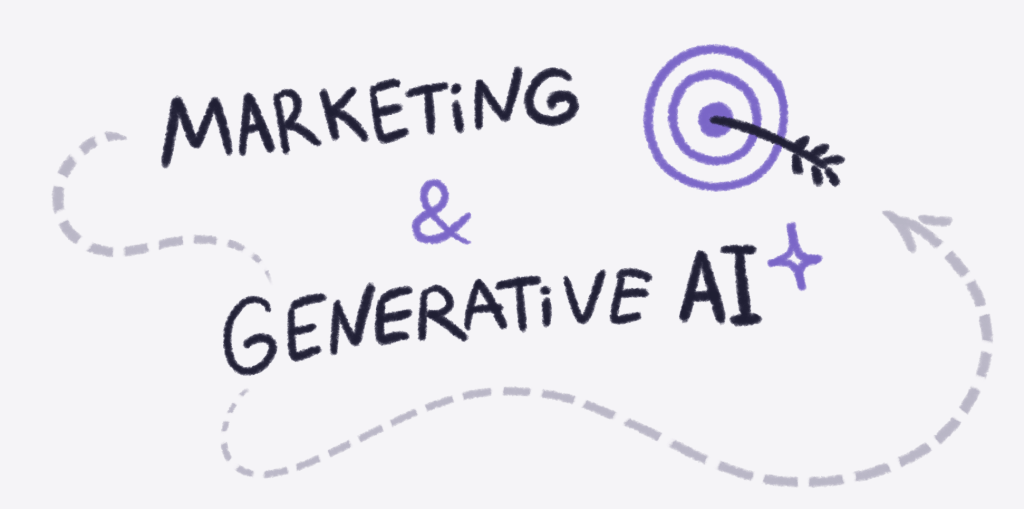Google Ranking Factors: Learn How AI Content Can Improve Your Organic Traffic Rate
According to a study by the content marketing platform MarketMuse, incorporating artificial intelligence (AI)-generated content into your content marketing strategies can result in a significant increase in organic traffic.
The study showed that sites using AI powered tools for content planning and keyword research not only improved the organic traffic rate but also the site’s ranking on Google. Does this sound too good to be true?
Of course there’s a catch with these AI powered tools
MarketMuse’s study also mentioned that Ai generated content needs human supervision to ensure optimum results. This has been my experience and it synchs with that of my writer colleagues. We love these AI tools for their ability to save us time doing research and their ability to draft articles.
AI generated content isn’t ready for prime time, but it’s a great starting place. We can beef up these AI generated articles with data, examples and our own experience to produce articles in a fraction of the time it might have taken before.
What are Google’s quality ranking factors?

- Quality of the content
- Backlinks pointing to the content—and their quality
- Authority of the website—and its quality
The common denominator here is “quality”. It goes back to Google’s 2022 Helpful Content Update: E.E.A.T., that called for Experience, Expertise, Authority and Trustworthiness. Google really doesn’t care who is generating the content as long as it is meeting these requirements for quality. According to Google, you can benefit from AI generated content if you manage it correctly, but it’s not a guaranteed solution to achieving high search engine rankings.
Is your AI powered tool creating the content you want?
We’re all getting pretty savvy about the power of AI—it’s solving long and tedious math problems, writing and editing content, creating multimedia presentations and extracting keywords. The more I use these tools, the more I understand how to interact with them to maximize their potential.
Google and spam detection
Detecting and combating AI-generated spam poses a significant challenge for Google due to its complexity and sophistication. Nevertheless, Google has made considerable progress in developing AI tools capable of identifying patterns and irregularities that can identify spam. These algorithms assess content quality, structure and user engagement metrics. They also look at things like keyword stuffing, duplicate content and suspicious link patterns. These are all part of Google’s quality ranking factors.
Google’s AI powered algorithms alongside human expertise help maintain a high level of search result quality. At the same time they’re mitigating the impact of AI-generated spammers who are trying to manipulate the system.
How AI powered tools are changing the content marketing space:
- Time savings: You can use AI tools to create articles, social media posts, and other types of content in seconds. Automated writing software like Jasper and Writesonic have made content and copywriting nearly instantaneous.
- Personalization: AI-powered algorithms help you analyze user data and personalize content accordingly. It enables you to adopt a more targeted approach with your customers.
- SEO: You can use AI tools to identify the best keywords, topics, and formats for maximum SEO. Use quality SEO optimizing software like Ubersuggest, SurferSEO, SEMrush, etc., help your page rank higher in SERPs.
- Economy: Another benefit of AI-generated content is that it is more economical for you. AI-powered tools can create content quickly and efficiently, which can save money on content creation costs.
Will AI replace humans? Quality may become a moving target
I’ve been using an AI writer for less than a year, but in that time, the app has improved dramatically—higher quality results, new functions and tools. Remember that it’s only as good as the data. And that data can be erroneous and biased.
While AI powered tools can streamline many processes, they are no match for human creativity and critical thinking. AI won’t be replacing experienced content creators and pros anytime soon. The resulting product is too stiff, too generic to keep its audience engaged. But the AI industry is in its infancy and it’s moving fast.
AI powered tools for Ideation
I’m using AI writer for ideation. Coming up with some good topics to write about is a great use of these tools. Use some of the following tips to create a successful content marketing strategy by combining AI and human content creation skills.
- Create an outline. If you are confused about what content to include in your article, you can use an AI writer to help you develop an outline. Later, you can edit the outline and make changes that will improve the content quality. If you’re not satisfied with the results, try again with different keywords.
- After you have selected a topic, you can enter the topic name into an AI keyword generator. These keyword generators help you come up with the most relevant keywords. You can also check which keywords have the highest search volume and use them in your content.
- Once you have produced the content, you can use AI writing editors to remove grammatical/tone errors. Some editors also point out the extremely large sentences and suggest how you may make them more readable. We should be writing for fifth graders.
- After you have selected a topic, you can enter the topic name into an AI keyword generator. Keyword generators help you come up with the most relevant keywords. Check these keywords in applications like Ahrefs or Semrush to identify those keywords with the largest search volume and lowest competition and use them in your content.
Limitations of AI powered tools
Lack of originality: When using AI-generated content, it’s important to keep in mind that much of it is simply a copy of existing content found online. Rephrased or duplicated content can come across as unnatural and harm your SEO efforts. Keep in mind that content within a given document is often redundant. Expect to do some serious editing.
- Lack of creativity: When you use automatic content generators, they mostly take a piece of writing and rephrase it slightly to make it seem new. For this reason, AI-produced content may convey the same idea as others have already expressed in their writing, and therefore, it may lack the required creativity. AI content requires personal experience and data. This is what you must provide.
- Needs human revision: Even if you’re using the best AI powered tools, it’s still possible for significant mistakes to slip through. Proofread and run through a plagiarism checker like Copyscape or Grammarly. Use Grammarly’s suggestions to improve your writing. Some of the plagiarism checkers out there are terrible, including the one on Writesonic. Google hates duplicate copy because it gets confused and can’t index this duplicate content. You’re sabotaging yourself.
Conclusion
- Can AI powered tools improve your organic traffic? They can, but it generally it depends on a human intervention to provide the examples, case studies, data and personal experience that make an article compelling.
- Google doesn’t care who generates the content. What it cares about is quality, as per its Helpful Content Update 2022, EATT.
- AI algorithms can now generate articles, blog posts, social media updates that mimic human writing styles.
- AI powered tools are saving time and money for busy marketers and others who need to generate a wide variety of documents.

